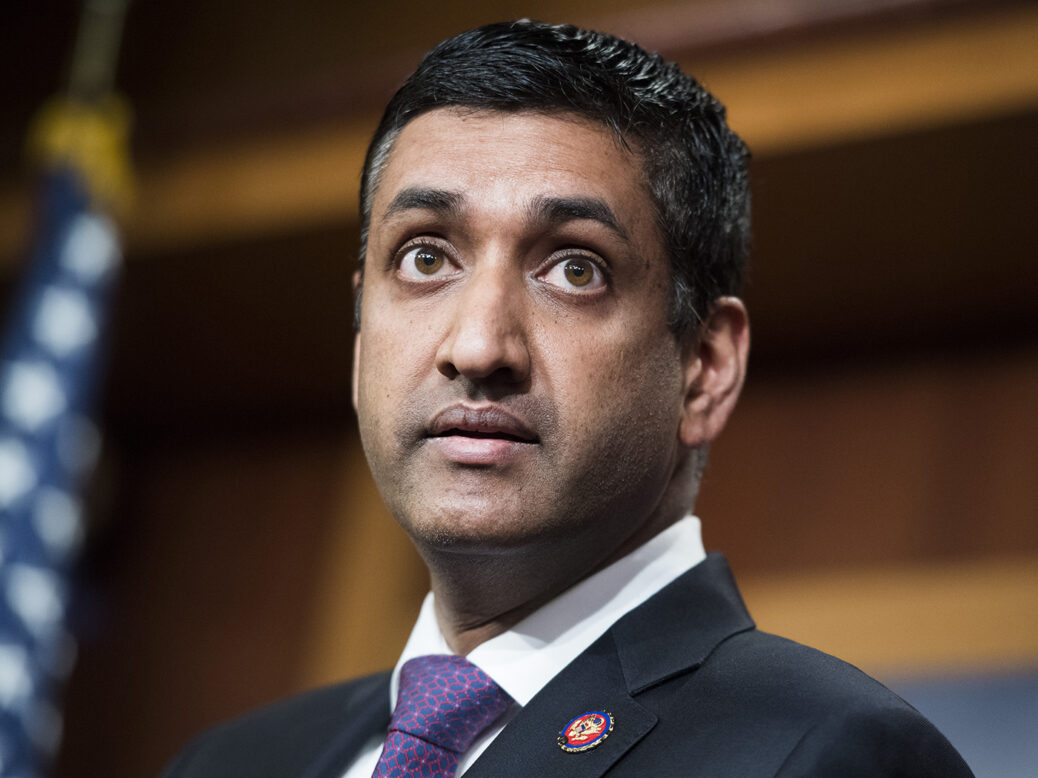
WASHINGTON, DC – The Democrats are in the doldrums.
That’s how it can feel, anyway. Biden’s ambitious Build Back Better legislation is stalled in the Senate. Voting rights legislation is stuck there, too.
“I understand the frustration,” acknowledged Ro Khanna, a Democratic congressman from California and member of, among others, the Congressional Progressive Caucus, to me over Zoom. “But I would say, let’s look at the whole record.” He goes through the list of Biden-Democrat achievements. They passed the American Recovery Plan, providing relief to families during the pandemic. They passed the infrastructure legislation, which is “going to finally provide affordable broadband to every American in this country. That is going to start the process of removing lead pipes. That’s going to start the investment in electric vehicles. I’m not saying that this is in any way sufficient, but it is a strong start.”
Now, he said, elected officials need to get the climate provisions of the Build Back Better Act passed, and pass voting rights legislation.
“Politics is about priority,” he said. Protecting voting rights is about the very sanctity of American democracy. And, as no one knows the outcome of this fall’s midterm elections, the next few months may be the last chance that Democrats have for years to pass legislation that will address the climate crisis.
Khanna was co-chair of Bernie Sanders’s 2020 presidential campaign. He’s been a leading voice on rethinking American foreign policy, pushing in particular to end US support for the Saudi-led coalition fighting in Yemen. But he has also repeatedly spoken out in support of President Joe Biden and his administration, offering public assurances that many progressives will support Biden in a 2024 run. I asked him what message progressives should pass on to their more moderate Democrat colleagues.
“From progressives to moderates, it should be two things. One, the climate can’t wait: this is our moment. We have to act, or we will be judged by history, harshly. And two, we have to deliver for working families.”
And from moderates to progressives? “Let’s take what we can get instead of getting nothing. And let’s be pragmatic. We may share your aspirations, but this is what’s going to get 51 votes [in the US Senate]. Get on board.”
There was, recently, some good news for liberals: the Supreme Court justice, Stephen Breyer, is retiring while Democrats still control the Senate, which means Biden will actually get to pick his replacement, and has said he will nominate a black woman. As a member of the House, Khanna will not take part in the process of voting for the nominee. Still, he offered, “I am very excited that President Biden is going to nominate an African-American woman. What a moment of history: [it’s] unbelievable that an African-American woman hasn’t been on the court yet, and there’s so many extraordinary candidates.”
[See also: Stephen Breyer’s retirement from the Supreme Court gives hope to liberals]
This week, Khanna published a new book: Dignity in a Digital Age (Simon & Schuster). Why, I asked him, did he choose that as his subject?
“I represent a place where there’s so much optimism about America, young kids are optimistic and we have over $11trn of market cap,” said Khanna, who represents the heart of Silicon Valley in Congress. “And I say, how is it that you can have that in my district, and yet across America and communities you’ve seen deindustrialisation?… How do we get more communities a chance for participating in the modern economy?”
But the tech sector is also the site of inequality and inequity, I noted, thinking of tech oligarchs and billionaires who have become even more obscenely rich over the course of the pandemic. How can we pass around the optimism and opportunity that tech has to offer while curbing inequality?
“I think there are two things that have to happen,” he said. “First, we have to tax the billionaires. We have to tax corporations. There’s a frustration that some of these corporations just aren’t paying enough tax and that the billionaires aren’t paying enough tax, but that’s not sufficient… What people want is an opportunity to participate, to create value, to contribute. And that’s what I talked about. How do we decentralise the innovation economy? How do we democratise it?”
Outside of the book and back in Congress, Khanna has introduced the Endless Frontier Act. “It’s about creating new technology hubs with manufacturing jobs, construction jobs, innovation jobs in communities across this country,” he said, adding, “I’m very optimistic that it will pass.”
Before we hung up, I asked him if there was anything he felt he hadn’t had the chance to say.
And he ended where he started.
“I understand the anxiety and frustration that people feel around the country,” he said. “We’ve had two years of a pandemic… We have had hundreds and hundreds of thousands of people die. We’ve had an insurrection attempt on 6 January when we were supposed to have a peaceful transfer of power.”
But, he said, he was still hopeful: when he looks at “the long trajectory of America, when I look at my own life story”. He was born in Philadelphia, the son of immigrants and the grandson of someone who was imprisoned with India’s independence leader, Mahatma Gandhi, and now represents a multiracial, multi-ethnic district.
He hoped others can find a way, too. It wasn’t losing that he was afraid of, he said, but apathy and disengagement.
“That is the real danger for our society.”
[See also: Joe Biden’s failure on voting rights could cost the Democrats the White House]





